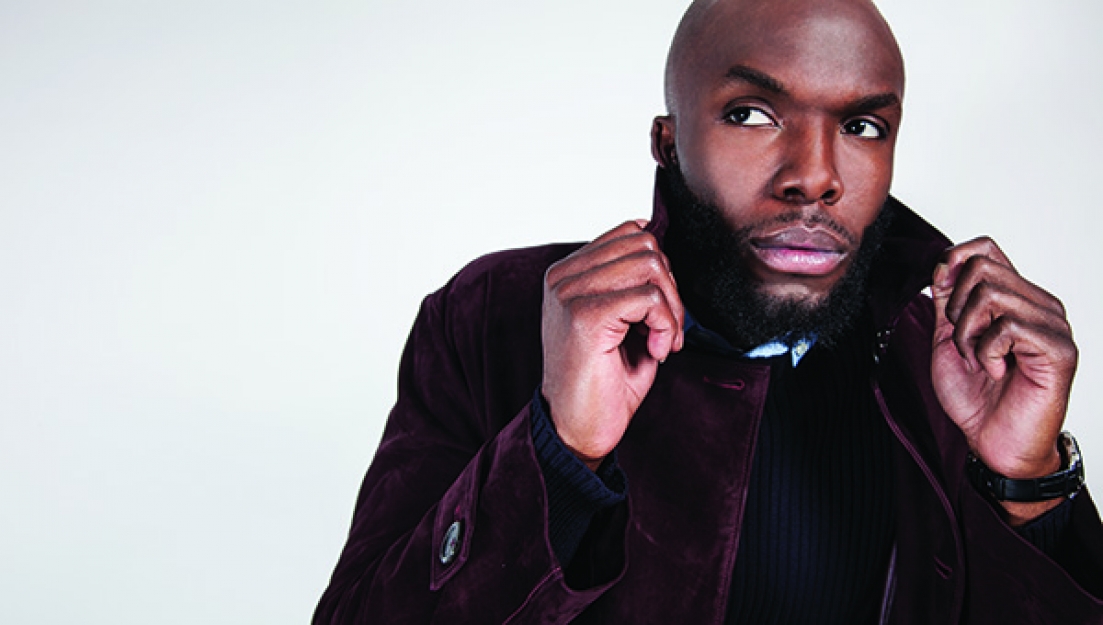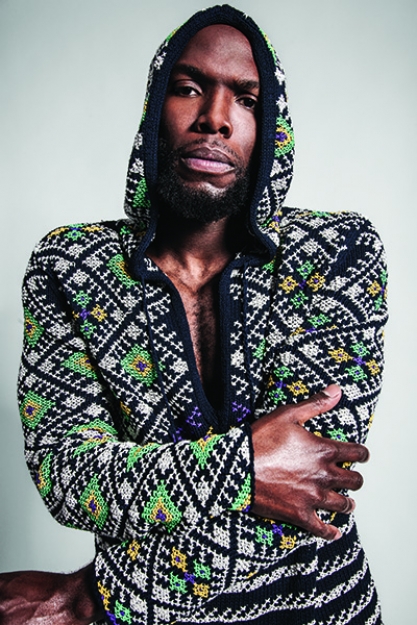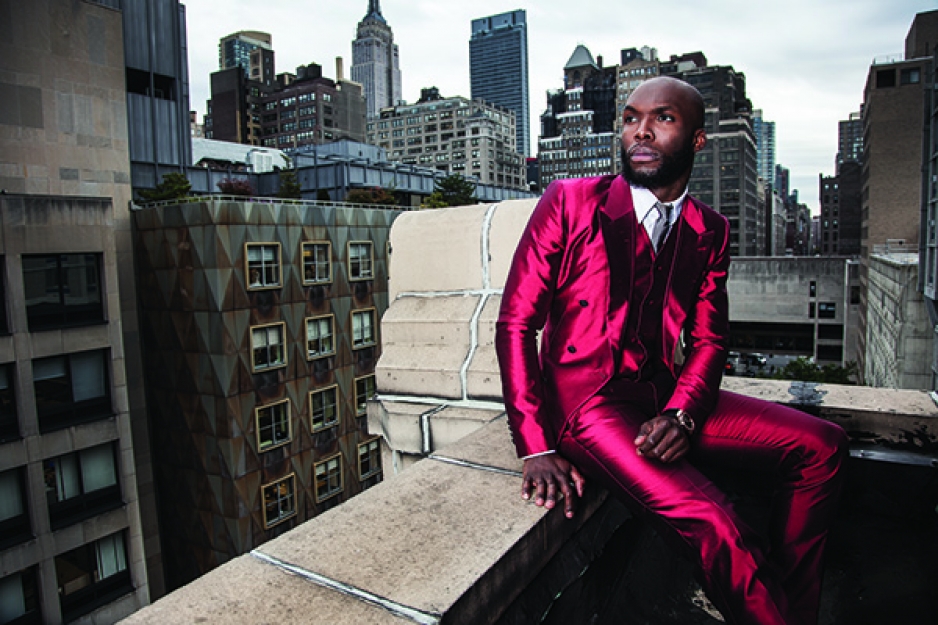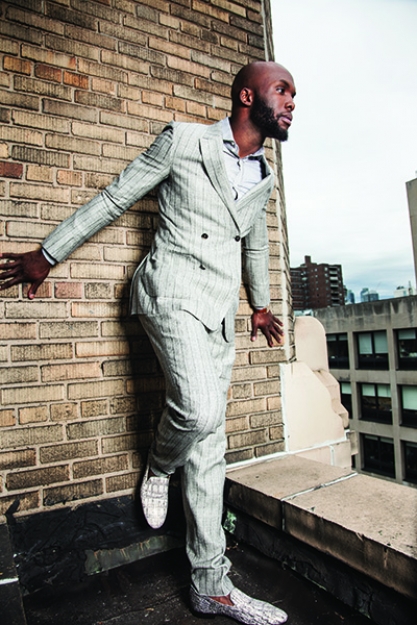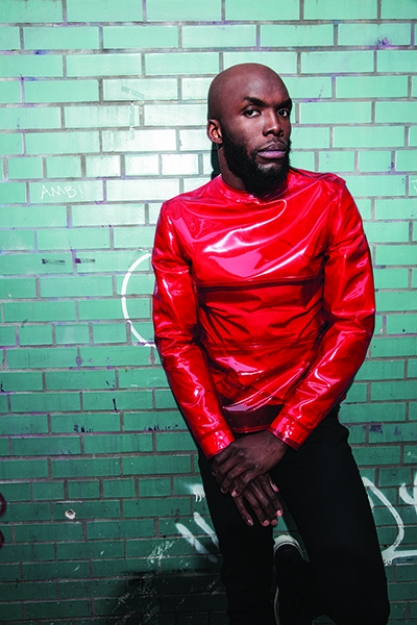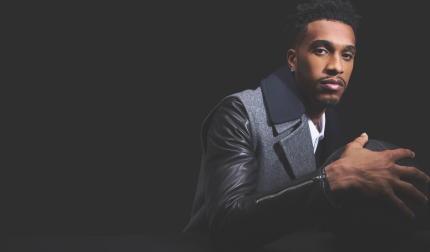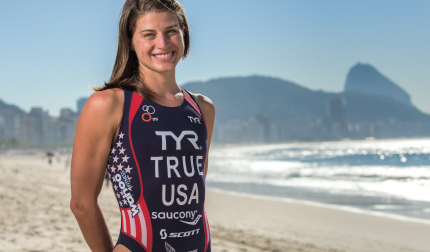How did you get started in track in field?
I was always the fastest kid, ever since I was six years old. I played baseball, football and basketball. I didn’t start running track until I was a junior in high school. The football coach said the school needed somebody to run the 400 meters. He was like, “Yeah, only real men run the 400!” So I signed up and I started winning, even though I hadn’t trained much for it.
When did it become just track and field for you?
Really, that junior year of high school. I really loved baseball. That’s the sport I started with. It’s the sport my older brother always played. The Tidewater Tides played near us, so we grew up watching baseball a lot. But I just was good at track. It was the sport that I felt that if I did the work, the sky was the limit. My senior year, I won everything from the state championship, to nationals, junior nationals; I won all there was to win. I was the number one person in the world in my age group, and it was only my second year doing it. I was also getting some looks in football, but we didn’t have a good team. You need to have that passion. Since the team wasn’t good, it took the passion away a little bit.
How soon did you realize it could be a career?
Pretty quickly. I turned pro after my first semester of college at East Carolina. I ran at the Tyson Invitational in Arkansas, and I was the only collegiate athlete in the race. Everyone else was running for Nike or Puma or whatever. And I won the race at 18 years old. The guy from Nike came up to me and said, “Look, you just beat everyone that we are paying. How about we pay your college tuition and you turn pro and run for us.”
Were people resentful that you were successful so quickly?
I wasn’t dominating when I turned pro. I finished second here third there, winning some races. People kept telling me, “You’re so young! You’re only 18! You’ll have time. But I didn’t look at it that way. I told myself that I needed to treat it the same way that guys who were 26 and trying to feed their families treated it. If I had time to get better, then I should have just stayed in school. I was there to be Number One.
If track hadn’t come so quickly to you, could you have gone in a different direction in college?
I don’t know. Through school, you kind of learn yourself. You are around different people. You engage in different activities. There’s no telling what I would have gotten into. I enjoyed business, so maybe that would have been the road for me.
Everything seems to have happened so fast for you in track. What’s the first obstacle that you encountered?
My first world indoors, I was in Moscow, and we had three rounds. The first round, I ran out and got disqualified, because I stepped on the line on my third stride out. My first round was just as fast as the final round. So it was my first major competition and I got DQ’d. But I’ve always been the kind of person who moves forward. I tore my hamstring two weeks before the last Olympics n London in 2012. I didn’t even get a chance to finish the first round. Things happen in life. You have to learn get over it and move forward. By 2013, I was Number One in the world again.
You’ve experienced tragedy in your life (LaShawn’s older brother and closest friend, Antwan, passed away in 1999 after falling from a college dormitory window.) Has that helped form your philosophy?
The people I keep around me—my mom, my dad my whole support team—we are realists. I live my life on the premise that this is not the end of the world. The more I sit in my sorrow, the worst it will be. I always pick moving forward. I had someone dear to me, my brother, who is not here to do anything anymore. If he’s not here to do anything, how can I be held back by little bumps in the road?
As someone who looks forward, what do you look forward to most?
The Olympics is coming up next year. I’m still working towards a world record, so that’s in my sights. And one day, I’d like to not move around as much. Ever since I was 18, I’ve been traveling, moving, flying and training. I want to settle down, have me a family, have a couple of businesses and live.
What types of businesses interest you?
I have some real estate back home in Virginia. But I most excited about a mentoring program I’m putting together back home. Where I come from, Portsmouth, Virginia, a lot of younger kids don’t have positive role models. They don’t get to see or hear from somebody who came exactly from where they came from, worked hard, and is now on a world stage. When I was growing up, there were a lot of people just as talented as me who didn’t believe in themselves.
Did you have someone like that?
My mentor’s niece was married to Bruce Smith, the Hall of Fame football player. I would go from the hood to Virginia Beach, where there were these mansions. And then I would have to go right back to Portsmouth. Somewhere, in the back of my mind, I kept that spark. I can do this too. It’s not all about being rich. It’s about taking whatever I do to the highest level. I’ve been in the game now for 10 years, and I’m going to continue to be the best.


